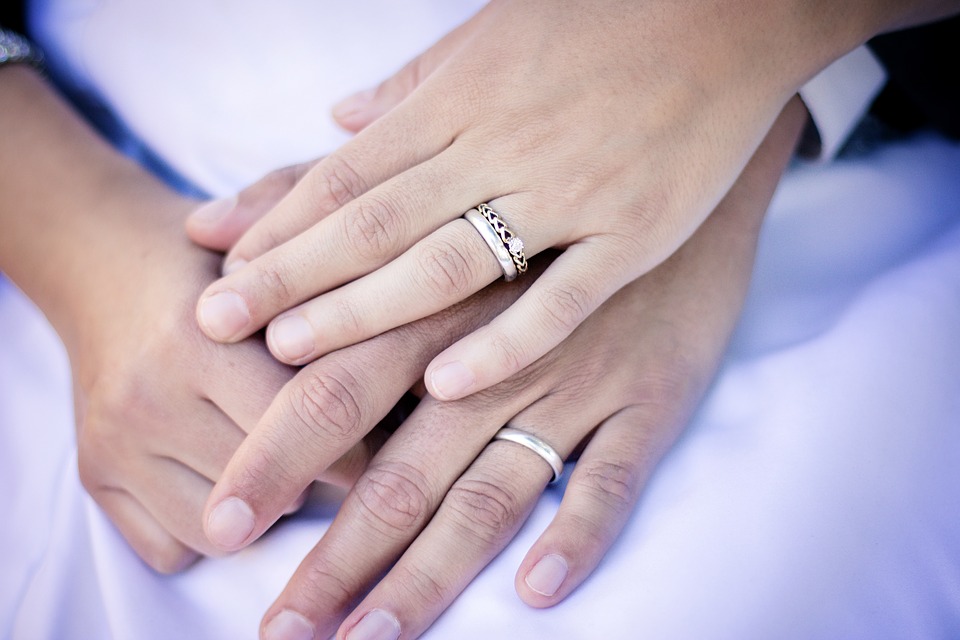How to Save for a Wedding: Wise advice for couples as Valentine’s Day approaches

Founder and CEO of Unbiased.co.uk, Karen Barrett, has some wise advice for couples this Valentine’s Day: “Getting married continues to be one of the biggest expenditures besides buying a house and the last thing you want to do as you start married life together is worry about getting into major debt. Here are the main things you need to think about.”
How much should we save for a wedding?
“You could be forking out around £30,000 for a traditional white wedding and reception, so setting a realistic budget is crucial. Start by deciding what matters most to both of you. Focus on these elements and then you can make savings on the things that aren’t as important to you. There are also plenty of more cost-effective alternatives and ways to keep those costs from spiralling. Consider guest numbers, time of year (you might find venues charge less for off-season bookings) and whether all the details are necessary.”
“Once you have your budget, look at your monthly spending to see how much you can start saving with simple adjustments to your current lifestyle. Set up a separate savings account to ringfence the money you both save. Also be aware that most people have a personal savings allowance that allows them to earn interest on ordinary savings tax-free. Basic-rate taxpayers can earn £1,000 of interest per year before paying tax, while higher-rate taxpayers have a £500 allowance.”
“You can also earn interest completely tax-free in a cash ISA, though there are limits on how much you can save each year. The total amount you can save annually into all your ISAs is currently £20,000.”
How much should I spend on an engagement ring?
“Tradition says that you should spend one month’s salary on an engagement ring, though some stretch that to three months. Spend what you can afford and more importantly, spend wisely. An engagement ring is a very personal choice and it’s worth remembering that you’ll be wearing the ring much longer than the dress! Consider your engagement ring as an investment and do your diamond homework. Besides the High Street, consider vintage or antique rings as you can find real gems. Think about an ethical or lab grown rock. Or does anyone in your family have something that could be handed down? Thinking outside the (jewellery) box can really reap rewards.”
What sort of insurance should we put in place?
“According to data from the Office of National Statistics, 260,000 weddings were postponed in the UK during 2020 Covid-19 lockdowns. Although the future is now looking brighter, the last couple of years has impacted the insurance market with many wedding insurance providers pausing the sale of policies. Do check the small print with your venue and suppliers first and keep a close eye on the insurance market which will adapt in line with official guidance.”
“One thing often overlooked in all the planning is engagement ring insurance. It’s a valuable item which should be checked and listed on your contents insurance.”
What financial decisions should we make before getting married?
It’s important to understand your attitudes to money before tying the knot and to discuss major decisions that will affect your financial future together. Pension provision is a key point – will both pensions be paid into if one of you stops working and stays at home to look after a newborn? How will you finance big purchases – on credit or with savings? You should also discuss a prenup, especially if you bring any sizeable assets with you at the point of marriage. At the very least, consider how your shared finances will work to cover living expenses and how you can ring fence individual assets.
How important is financial advice?
“As you embark on your journey together, you should ensure your finances remain happy ever after too. An independent financial adviser can give you a money health check to ensure you plan and save properly for the future, from starting a family to retiring early. Getting expert advice on how you manage combined finances is not something many people think about but it really can help you both achieve the life you want together. With 27,000 expert independent advisers just a click away, unbiased.co.uk is the quick and easy way to find your perfect adviser.”
Karen’s Top Tips
- Discuss your approach to money together before tying the knot
- Think about ring fencing any sizeable individual assets
- Decide on how you will manage pension provision if one of you is not working
- Talk to an independent financial adviser about your joint financial goals
- Invest in an engagement ring (and insure it) as you’ll be wearing it longer than the dress
- Agree on what’s most important to you both about your big day and make savings on everything else
- Check the small print of your venue and suppliers if you can’t get wedding insurance
